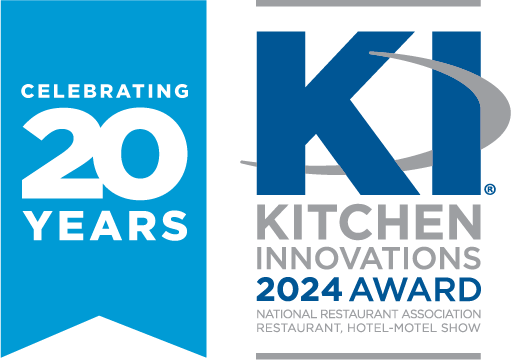On July 16, 2022, Slow Food hosted its 8th International Congress in Pollenzo, Italy. This historic date for the organization marks a new phase of change and regeneration, with the election of a new board led by a new President, Edward Mukiibi. He takes over from Carlo Petrini, who founded the movement in 1986.
“The role of our food system in the unfolding environmental disaster is increasingly clear. Our movement, which has been working for over 30 years to revolutionize that food system, must have the courage to take a leading political role in the fight to ensure a change of course and avoid catastrophe,” said Carlo Petrini. “And for that we need a new governance led by the next generation. We must show our ability to combine innovation and tradition, and an awareness that the path that we have taken so far has delivered once seemingly-unattainable achievements, allowing us to grow into the movement we are today. However, the world is profoundly different now, compared to the way things were when our movement began. There’s a need for the direction, creativity and intuition of a new team capable of interpreting our present situation, outlining a trajectory and achieving our future goals, which at their core, remain the same: to guarantee good, clean and fair food for all.”
At the center of these prospects is Slow Food’s new President, Edward Mukiibi, better known as Edie.
He was born in 1986 in Uganda into a farming family, the same year the Slow Food Movement was born on the Spanish Steps of Rome in protest against the opening of a McDonald’s. Originally from Kisoga in Uganda’s Mukono district, Mukiibi’s story is rooted in his family’s farm. Today, he makes history with his appointment as President of Slow Food, and looks forward to shaping the future of regenerative farming cultures.
A tropical agronomist with a Bachelor of Science degree in Agriculture and Land Use Management from Makerere University in Kampala (Uganda) as well as a Master of Gastronomy from the University of Gastronomic Sciences in Pollenzo, Mukiibi is a food and agriculture educator, social entrepreneur and, as of this month, officially stepping up to lead the Slow Food community as the organization’s President.
Mukiibi’s work has been recognized by many awards honoring his selfless contribution to a sustainable, fair and just food system, including a Ray Charles Black Hand in the Pot Sustainability Award from Dillard University and a Testimonial Resolution from the City Council of Detroit. He has also been listed in the Empowering Educators category of the 50 Next awards for young people under 35 shaping the future of gastronomy.
In addition to the presidency, Slow Food’s Executive Committee, the organization’s highest decision-making body, was renewed, with a new group that reflects the rich diversity of the movement.
During the Congress, they expressed their future commitment to guiding Slow Food:
Marta Messa (Italy), new Secretary-General
“From my more than 10 years serving Slow Food, I have learned a lot about the unique aspects of our movement: We’ve seen this shining so far, including during the pandemic. As a group we want to make the most of the movement’s strengths, with an awareness of its imperfections and what we need to improve. As we celebrate the remarkable accomplishments of Carlo’s legacy work and welcome Mukiibi’s new leadership, we are also growing, just like any other organization. Our goal is to keep fighting for the right of every single individual to good, clean and fair food, to elevate the incredible wealth of knowledge of grassroots communities and to facilitate the uptake of sustainable food systems the world over.”
Richard McCarthy (USA)
“How can we engage people in everyday life? The development of thematic networks has proven to be a strategic asset for the Slow Food movement, deeply engaging a relevant diversity of targets able to impact food systems by catalyzing the processes of change through mutual exchange and collaboration on issues deeply linked with their daily lives and interests, as well as mobilizing specific new resources. I believe that thematic networks also offer an opportunity to test new experiences for aggregation within Slow Food.”
Dali Nolasco Cruz (Mexico)
“Indigenous peoples are examples of resilience and defense of life on Earth, repositories of ancestral knowledge. Indigenous women and youth around the world struggle for the recognition of their role as guardians of food systems, land and biodiversity. The regeneration of Slow Food is an opportunity to continue to build from the collective and for it to position itself as the best and most recognized organization in food issues.”
Jorrit Kiewik (Netherlands)
“I was born just short of 20 years after the Club of Rome published its “Limits to Growth.” I grew up in the middle of a climate disaster. In the past 30 years I’ve experienced first hand how the loss of biodiversity has a terrible impact on our planet. My generation and the generations to come are suffering from the lack of action in the past 50 years. I believe that Slow Food has the key to reversing these challenges. I believe that our movement, uniting producers and consumers, and everyone in between, can change our world for the better. I am honored to take this role and can’t wait to start working with the global network of grassroots activists, making a change for the better. Changing the food system, one step at a time.”
Megumi Watanabe (Japan)
“I would like to remember the focus on joyfulness which is the core identity of Slow Food. We need to regenerate relationships between ourselves within the movement, as well as with the outer world, so we can truly become a collective voice. We should keep reminding ourselves that this movement is for all humankind, therefore we need to make an effort to go beyond boundaries, to get out of our comfort zone.”
Francesco Sottile (Italy)
“If biodiversity has been our goal for 30 years, today a regeneration effort must also address our approach to biodiversity itself. We have said many right things in the past, we have supported an international network capable of demonstrating how much biodiversity there is around the planet and how much we are losing and will lose if we do not find the key to conservation through rural communities. Today we must support an ecological transition, mitigate climate change and regenerate resources and rural areas by fighting poverty and restoring food sovereignty to rural communities. We must make every effort for biodiversity and agroecology to be at the center of food policies, and to demonstrate that from diversity comes resilience.”
Nina Wolff (Germany)
“The world needs guidance in order to slow down, and this reinforces our responsibility to make the Slow Food message shine; in view of the current crises and human rights violations, the political focus of our work must grow. Advocacy can be a tool for realizing our heartfelt hunger for food justice. It’s a necessity for Slow Food in the global north to make the effects of our food systems on the global south understood. This international board is a great team of reliable and dedicated individuals ready to serve the movement.”



